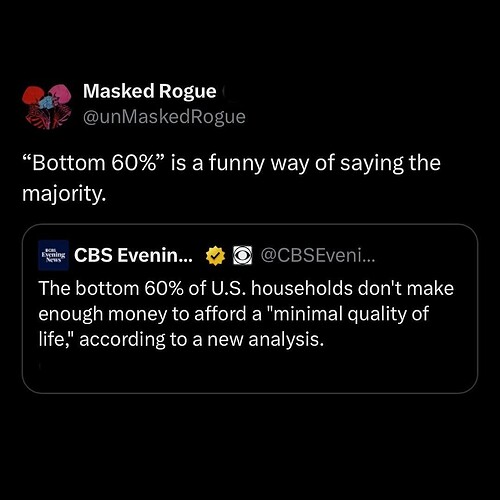I’ve noticed they often summarize like random opinions on subjective things which is annoying. I want to know, say, when this was published and some salient blurb about the subject matter without interpretation. I do not want to hear how an ai “feels” about the subject in general. I don’t even want a summary of popular opinion most times as I consider it totally irrelevant. Why should I care if 90% of rotten tomatoes bots and lurkers like a movie, for example? That is irrelevant to my highly specific case.
Honestly all the ostensibly helpful things feel hostile to specific cases. Like google will search for what it thinks you meant instead of what you typed. And that’s great if you’re making a common search with a typo, but a nuisance if you’re actually looking for a less common word. Sometimes I’m curious to see if there are any results for something but it would rather ignore me than come back empty handed.
As for the summaries, I find them helpful to basically the extent that the search fails to make plain what website I could check. Which it often does now. And heaven forbid someone named a company after the ordinary noun you are looking for, because that’s an extra screen of irrelevant links right there.
Ed Zitron has written a lot about all this.
Except that it’s not that the summarized information is now accurate, it’s that the summarized information looks accurate while still containing critical errors such that using the information for decision-making a very bad idea.
Yes! @tornpapernapkin mentions that above too, and I see that all the time. Because from a LLMs perspective it’s training data is “the universe”, if the information is in the data it will speak authoritatively about it as if it’s a law of nature. I too have seen this very behaviour, where asking a follow up question in “how did you come to this conclusion” it will respond by telling me that it took a leap of conjecture based on the available data. The problem is, the response doesn’t say that unless you ask, instead it sounds like the first response is settled fact.
Perplexity does ok at this because at least it hyperlinks every source it used so you can cross-reference, but what it really means is every LLM is really Cliff Claven in disguise now.

It doesn’t know until you ask! It makes up a plausible sounding answer to your question, and when you ask where the heck that came from, it makes up a plasible sounding answer to that. But it’s not even based on what it did, it’s based on what people might say they did, prone to the same kind of errors as its other answers.
I hate to admit it but I have started sometimes checking Perplexity for things. I know I shouldn’t. But while you can’t really trust anything it writes, it actually does tend to find relevant links for you…and I don’t always have the energy to fight with search engines to do that. ![]()
I’m glad I have someone in my family who is a CS major specializing in automation, machine learning, and AI to lean on. That’s how I know that those systems don’t have to fake it. They typically have internal measures of statistical confidence. It’s arguably fraud for Google to present the summaries as fact when they have confidence factors that can be published for each “search.”
This I think is one of the truly good uses for LLMs and one that might be a net energy savings! Perplexity will find me the links I need directly to the content I was looking for, which often saves me checking site after site of crappy search results on multiple pages trying to find the correct result.
IOW, how Google used to work, but with a much more context-aware search engine.
And as you pointed out, because it shows its work 100% of the time you don’t have to trust the answer. You can verify the source yourself.
This is one of the few clear-cut services that I actually do think is a net benefit to anyone seeking published information online, and probably does save energy on average if, like me, you find yourself ending up on several ad-overloaded copycat pages nowadays from a traditional search before you land on what you were actually looking for.
Good news, everybody - techbros have invented banks.
The entire crypto cycle has been a speed-run of declaring that we don’t need banks, banking regulations or consumer protections, then demonstrating why we need every single one of those things in quick succession.
For those who didn’t get the message when unregulated mortgage companies tanked the real estate industry.
The entire point is the continued destabilization of the Middle East, and a massive payout for oil industry chums.
Robert Reich in an interview on Democracy Now! discusses Mamdani’s win in NYC and lessons the Democratic Party / establishment should learn about economic populism:
Also, here’s his video with Lina Khan on how monopolies steal our freedom:
This is pretty wild, even one of Leon’s comments on EGGS was technically correct - how weird is that?
As NPR reported, more intense storms driven by the overheating planet have caused insurance premiums to rise by around 24% in the last few years, according to the Consumer Federation of America.
Major insurance companies and banks have refused to offer coverage in parts of high-risk states, including Texas, California, and Florida, leaving homeowners with the difficult decision of either finding a new provider, often with higher premiums, or risk going without insurance.
“If you fast-forward 10 or 15 years,” Federal Reserve Chair Jerome Powell said, “there are going to be regions of the country where you can’t get a mortgage.”
If huge swaths of the country are uninsurable and people can’t get home loans, that would have cascading impacts on communities. Property values would plummet, and without sufficient revenue from property taxes, cities would struggle to fund essential public services, including schools, police and fire departments, infrastructure projects, and other vital needs.
- Maybe it’ll get hedge funds out out residential properties?
This will also leave many recent home buyers upside down on their mortgages, which will result in an increase in loan defaults, which will negatively impact banks. Cascading effects, indeed.
It seems more likely to increase their involvement, as the ones with deep enough pockets to not need a mortgage. Also, there’s this trend to consider:
Fewer mortgages and more foreclosures could increase rental units. Renters unable to get insurance would be at risk.
I’m not sure that the assessed value of a house / taxes would change as a rental - unless improvements or NKOTB rules apply. Either way, that’s always reflected in the rent. It’s another area where the wealthy might make it impossible for those who aren’t rich to own anything. ![]()



